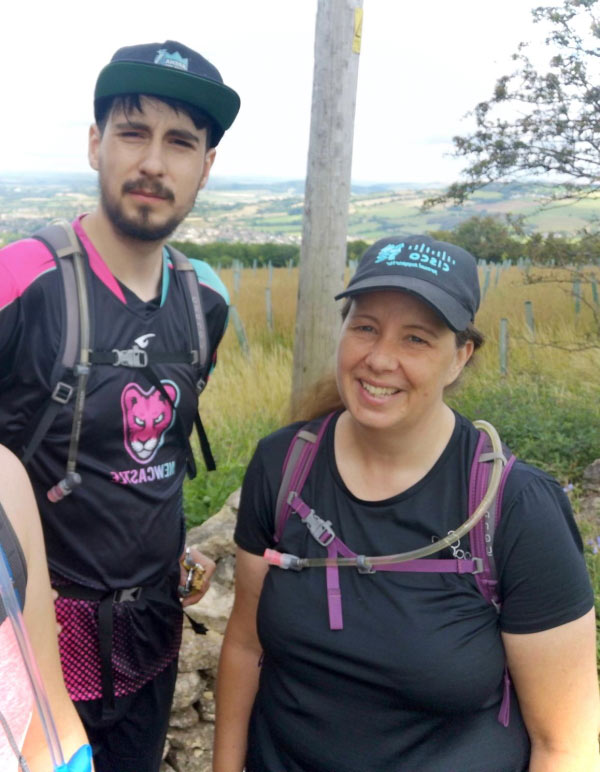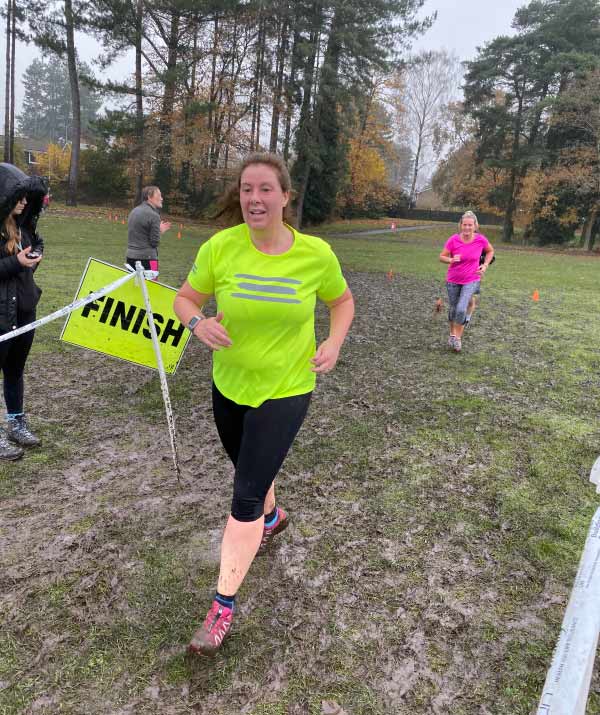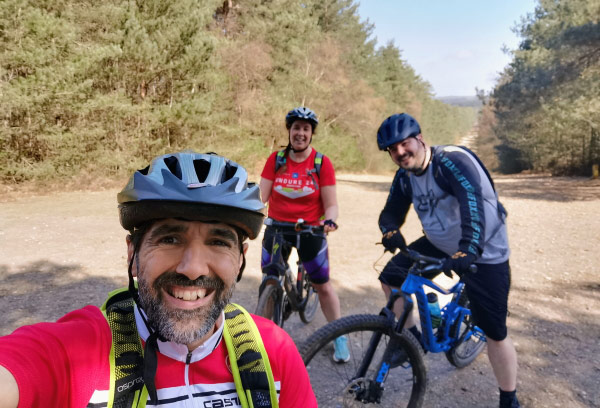2021-May-26
Did you know? You can share this story using the social media icons on the upper left. Use the hashtag #WeAreCisco. You can also rate or comment on the story below.
A More Balanced Superwoman
BY LIZ HELYER · GLOBAL SALES ENABLEMENT · U.K.
WITH HELEN GALL
Editor’s Note: The following story involves a discussion about mental health, including self-harm, which might be upsetting to some readers.
I first started to realise something was wrong in 2007. My memory would go blank, I struggled to remember names, and my concentration was very poor.

I’d stopped enjoying life, but hadn’t noticed
Ever since my son was born 10 years earlier, I was literally trying to be Superwoman. I spent several months beating myself up — telling myself I was pathetic and to pull myself together.
I was stronger than this!
My experience of depression at that stage was minimal. I thought it was one of those excuses people give for being weak-minded. I wasn’t weak, quite the opposite.
Even now when I tell people I have depression, it’s common for them to point out that I don’t look like the sort of person to be depressed.
Looking for answers
Eventually, things got so bad I began to look for answers. Seeing my doctor hadn’t crossed my mind, and Google wasn’t what it is today, so I headed to the book shop. I picked up Depressive Illness: The Curse of the Strong by Tim Cantopher. It explained that depression, specifically clinical depression, was a physical illness, no different from pneumonia or a broken leg.
The book totally explained my symptoms and highlighted a few more. For example, I’d lost all enjoyment in doing anything and my capacity for emotions had significantly reduced, but I’d been too busy to notice. At no point did I feel depressed in the sense of feeling miserable, mainly because I didn’t have the capacity to feel anything.
I booked an appointment to see my doctor — she was fantastic and prescribed antidepressants. There is no test you can do to determine which type of antidepressants will work for you. I got lucky with only two attempts to find one that worked for me, with manageable side effects.
Now that I was feeling better, I carried on as usual. However, as I hadn’t dealt with the cause, I had no resilience. A bit like continuing to smoke heavily with pneumonia! Since I had private healthcare, I was lucky enough to see a clinical psychiatrist.
Lessons learned
Ever heard the saying, “If you want something done, ask someone who is busy?” That was me: The busy person, never said no, and who would never let anyone down.
I was passionate about my job as a technical instructor for Tandberg, which was later acquired by Cisco. It never occurred to me that pushing back against unreasonable deadlines was even an option while often working over 60 hours a week. Couple that with a boss who gets used to how much you do and only demands more. Then throw in a car accident and a house move — I shut down completely and was admitted to hospital.
The hardest part was seeing my son and not feeling anything. Until that point, the drugs had been doing a great job, but I’d failed to learn several important lessons.
First was to say no! No to unrealistic demands and no to things I didn’t want to do outside of work. Second, I had done nothing for myself in years. I couldn’t be the perfect mother if I couldn’t keep myself well, so I had to start to put myself first.
I didn’t learn these lessons overnight. But gradually, over the years, paired with some cognitive behavioural therapy, I got better at it.

A balanced life… or so I thought
These days, my life is far more balanced. I eat better, run regularly, and make sure to take time out for myself. The first thing that comes out of my Cisco bonus every year is my spa membership!
I still have the odd wobble. These can show up as a very deep drop in mood that can last a few days — easy to spot and just need to be waited out.
But the more dangerous ones are the slow declines. I’m fortunate to be surrounded by wonderful people who spot these declines quicker than I do. It has taken me years to learn to spot these myself and take appropriate action.
I did relapse in April 2018. I started to notice some symptoms but couldn’t see a cause, so I didn’t know what to change.
By June, I was starting to go downhill rapidly and went back to my psychiatrist. He changed my medication to a newer drug, which seemed to work better and certainly had fewer side effects.
However, by August, I was self-harming — something I had never done before and that scared my husband. I understood it — it was the only way I could feel anything. But for him, it was unfathomable.
I also told my boss through email. He just didn’t respond at all because he didn’t know how to help. If you are ever faced with a similar situation, please just ask what you can do to help.
I battled on, but in November, I was eventually hospitalised again and diagnosed with an underactive thyroid. There was the cause which once dealt with, also stabilised my depression.
Living with depression
Day-to-day, depression doesn’t cause me any issues. 95 percent of the time, I perform well above average.
I still take medication and probably will for life. I still lack resilience, so life-changing events can throw me off track. The first four weeks of the COVID-19 lockdown threw me a bit, as it did for everyone.
With no daily commute, I lost the distinction between home and work. I found myself accepting meetings at unreasonable times. Before I knew it, I was working 60-hour weeks again.

I have some wonderful colleagues at Cisco from all over the world, some of whom I’ve known for many years and have become my closest friends. Working at home meant I didn’t see the friends who are very often able to spot declines in my mental health quicker than I can.
Another big indicator of my mental health declining is losing the inclination to leave the house or struggling to do so. Since I wasn’t going anywhere, I lost that indicator too. Learning how to spot declines and take appropriate action is key to staying well.
Bupa — our medical provider — and Cisco literally saved my life. I don’t even want to contemplate what would have happened without the treatment I’ve had. Cisco’s mental health first aiders (a U.K. program) have also been a massive help.
Attending and now teaching the mental health first aid (MHFA) course has been a real eye-opener. I’ve learned so much about mental illness — not just depression.
My fellow mental health first aiders have been awesome. There are two others in my area in Green Park who have been especially amazing. I’ve known both of them for years, and they have been there every step of the way. Just knowing they’re there has made a massive difference in my ability to manage my illness. When I was self-harming, they were the only people who understood and weren’t horrified.
Importantly, Cisco has been breaking down the stigma associated with mental health. I would not have spoken out like this two years ago. Even today, I still give myself a serious talking to when I start to go downhill and say, “Pull yourself together. You’ve got this.” Even now, I sometimes take PTO rather than admit I’m not well.
To anyone out there suffering in silence, don’t. The most important thing to remember is anyone can get better and have good mental health.
Related Links
Connect everything. Innovate everywhere. Benefit everyone.
Share your thoughts!
Log in to rate and commentShare your thoughts on the story here!